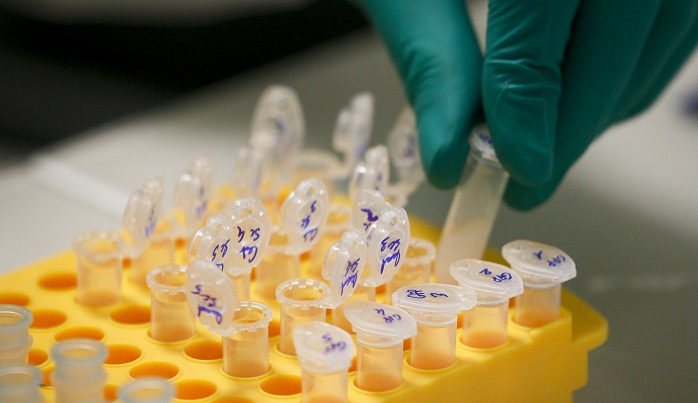Le Dinh Luong, president of the Genetic Association of Vietnam, told CNN that a Vietnamese couple brought in their fraternal twins because family members had been vocal about notable differences in the children`s appearance.
"Our Center for Genetic Analysis and Technology lab has tested and found a pair of bi-paternal twins," he told Agence France-Presse. "This is rare not only for Vietnam, but for the world."
Indeed, medical research has shown that when a woman has sex with two men within the same ovulation window, it can result in bi-paternal twins, known as heteropaternal superfecundation.
Hilda Hutcherson, a clinical professor for obstetrics and gynecology at Columbia University, said fraternal twins come when a women releases two eggs during ovulation instead of one — and both eggs are then fertilized.
With bi-paternal twins, she said, each egg is fertilized by a different man`s sperm.
Hutcherson said eggs can live up to 24 hours in a woman`s reproductive system. Sperm, on the other hand, can live up to five days in the woman`s body, she said.
So, Hutcherson said, it is possible that a woman could have sex with one man on Monday and have sex with a different man on Wednesday — and then when her eggs are released on Thursday, the two men`s sperm living inside her could each fertilize an egg.
Hutcherson said there are rare cases in which a woman may ovulate more than once during her cycle, meaning that two eggs would be released at different times.
In any case, Luong told BBC News, bi-paternal twins are "extremely rare."
"There are less than 10 known cases of twins with different fathers in the world," he said. "There might be other cases but the parents and/or the twins were not aware of it or didn`t want to announce it."
Hutcherson said fraternal twins make up about 2 percent of pregnancies — though that number may be growing — and bi-paternal twins are a fraction of them.
"It probably happens more often than we think; it`s just that nobody is testing to see," she said. "But it`s still extremely rare."
Similar cases of bi-paternal twins have popped up in other countries — including in the United States.
In May 2015, a case in New Jersey made news when a court ruled that a father did not have to pay child support for a second twin because DNA evidence showed that he was a father to only one, according to the Star-Ledger.
More about:
















































